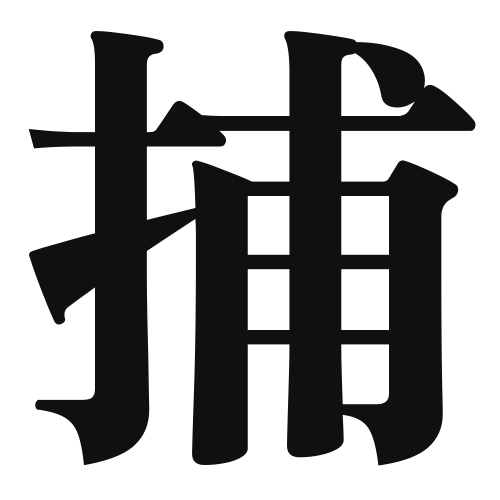1. Overview of Meaning
The kanji “捕” (pronounced “ho” or “bu”) means “to catch” or “to capture.” It is often used in contexts related to seizing or apprehending something or someone.
2. Formation and Radical
Formation of the Kanji: The kanji “捕” is a compound character that combines elements to convey its meaning. It consists of the radical “扌” (hand) and the character “捕” (to seize), indicating an action performed by hand.
Radical: The radical of “捕” is “扌,” which is related to actions performed with the hand, emphasizing the physical aspect of catching or capturing.
3. Examples of Usage
Common Words and Phrases: Some frequently used words that include “捕” are:
- 捕まえる (tsukamaeru) – to catch
- 捕獲 (hokaku) – capture (often used in a hunting or scientific context)
Example Sentences in Daily Conversation:
- 彼は魚を捕まえました。 (Kare wa sakana o tsukamaemashita.) – He caught a fish.
- 警察は犯人を捕まえた。 (Keisatsu wa han’nin o tsukamaeta.) – The police captured the criminal.
4. Synonyms and Antonyms
Similar Kanji: A similar kanji is “取” (toru), which means “to take.” While both involve the action of obtaining something, “捕” specifically implies catching or seizing, often with a sense of restraint.
Antonyms: An antonym of “捕” is “逃” (noru), which means “to escape.” This represents the opposite action of capturing or seizing.
5. Cultural and Historical Background
Relation to Japanese Culture: The concept of capturing is significant in various aspects of Japanese culture, including martial arts and traditional hunting practices.
Proverbs and Idioms: One relevant proverb is “捕らぬ狸の皮算用” (toranu tanuki no kawa zanyou), which translates to “counting the skins of raccoons you haven’t caught,” meaning to make plans based on uncertain outcomes.
